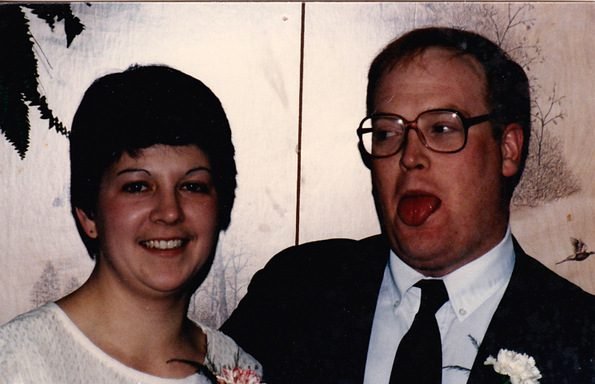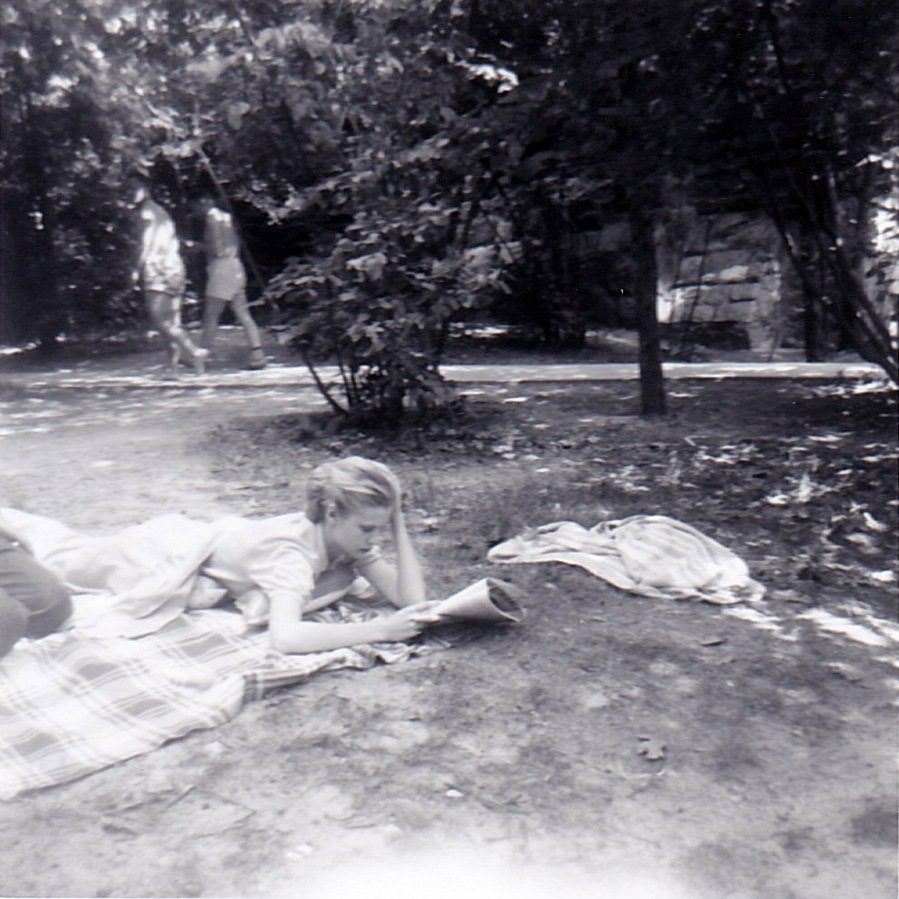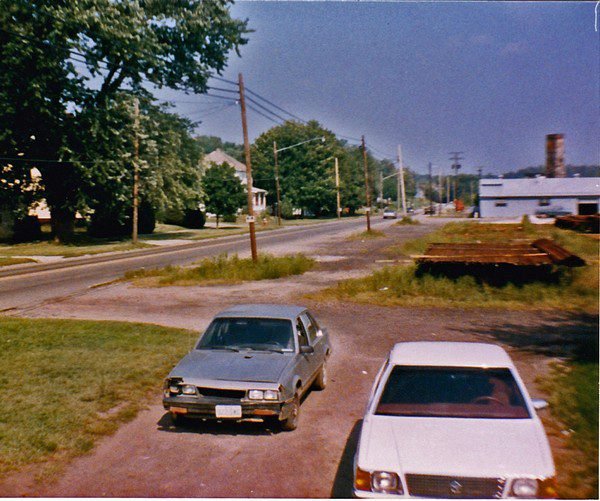
In the late 1980s, while I was the pastor of Somerset Baptist Church, I purchased a 1984 Chevy Cavalier for $2,900. It had 19,000 miles on the odometer. The car was spartan in every way: crank windows, vinyl mats, AM/FM radio, and no air conditioning. I used the car for my ministerial travels, and we also used it to deliver newspapers for the Zanesville Times-Recorder and the Newark Advocate. If this car could be resurrected from the junkyard, it would have stories to tell about Bruce and Polly Gerencser zipping up and down the hills of Licking, Muskingum, and Perry Counties delivering newspapers. All told, we put 160,000 miles on the car without any major mechanical failures. Tires, brakes, and tune-ups were all the car required.
If the car could talk it would certainly speak of being abused:
- Polly hit a mailbox, denting the hood and cracking the windshield.
- Polly hit some geese, damaging the air dam.
- Bruce hit a concrete block that had been thrown on the road on a dark fall night.
- Bruce hit a black Labrador retriever who was sleeping on the road, causing damage to the front of the car.
- Bruce hit a deer, causing damage to the bumper and radiator.
- A tree limb fell on the car, further damaging the hood.
- A woman drove into the back of the car while it was parked alongside the road in Corning, Ohio. We found out later that this accident broke the rear frame member.
By the time we were finished with the car, it looked like it had recently been used in a demolition derby. We carried personal liability insurance on the car — no collision — so no repairs were performed after these accidents. We certainly extracted every bit of life we could out of the car. It went to the happy wrecking yard in the sky knowing that it faithfully served Jesus and the Gerencser family.
Our Chevy Cavalier is a perfect illustration of our life in the ministry. Unlike Catholics, Independent Fundamentalist Baptist (IFB) preachers don’t take a vow of poverty. That said, the eleven years I spent as pastor of Somerset Baptist can be best described as the “poverty years.” I put God, the ministry, and the church before my wife, children, and personal needs. We did without so the church could make ends meet, thinking that God would someday reward us for our voluntary poverty.
Pastoring Somerset Baptist was a seven-day-a-week job. I was always on call, with rarely a day off. And as a workaholic, I liked it that way. During the late 1980s, for example, I was preaching on the street two days a week, teaching Sunday school, preaching twice on Sunday and once on Thursday. On Wednesdays, I would preach at the local nursing home. On Saturdays, I would help visit the homes of bus riders and try to round up new riders. I also helped start a multi-church youth fellowship. We had monthly activities for church teens. And then there were revival meetings, special services, Bible conferences, watch night services, pastors’ conferences, and the like. Throw in visiting church members in their homes and when they were hospitalized, and virtually every waking hour of my day was consumed by the work of the ministry. And lest I forget, we also took in foster children, many of whom were teenagers placed in our home by the Perry County Court. I believed, then, I could “reach” these children and transform their lives through the gospel and regular church attendance. I was, in retrospect, quite naïve.
But, wait, there’s more! — I am beginning to sound like a Billy Mays commercial. In 1989, I started a tuition-free private Christian school for church children. I was the school’s administrator. I also taught a few classes. Polly taught the elementary-age children. Many of these children have fond memories of Mrs. Gerencser teaching them to read. Students have no such memories of me, the stern taskmaster they called Preacher.
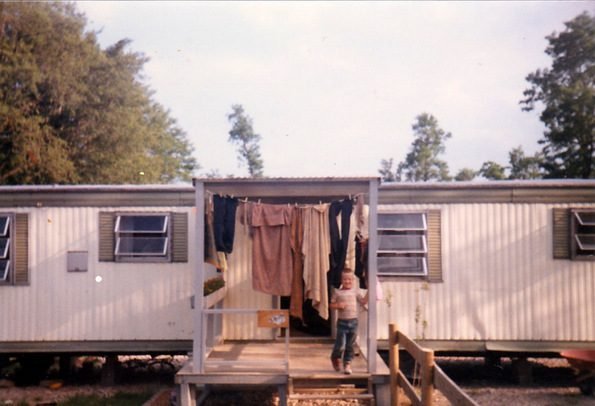
For the last five years at Somerset Baptist, we were up at 6:00 AM and rarely went to bed before midnight. When I started the church in 1983, we had two children, ages two and four. Eleven years later, we had six children, ages fifteen, thirteen, ten, five, three, and one. Our home was patriarchal in every way. Polly cared for our home — a dilapidated 12×60 trailer — cooked meals, and changed thousands of diapers — and not the disposable kind either. Polly used God-approved cloth diapers with all six children. She also breastfed all of them.
Why did Bruce and Polly live this way? The short answer is that we believed that living a life of faith on the edge poverty was how Jesus wanted us to live. After all, Jesus didn’t even have a home or a bed, so who were we to complain? If God wanted us to have more in life, he would give it to us, we thought. Much like the Apostle Paul, we learned to be content in whatever state we were in — rich or poor, it mattered not.
I left Somerset Baptist Church in 1994. I am now a physically broken-down old man. Some of the health problems I now face were birthed during my days at Somerset Baptist. There’s no doubt, had I put my family first and prioritized my personal well-being above that of the church, that we would be better off financially and I would be in better health. As it was, I spent years eating on the run or downing junk food while I was out on visitation. I know we surely must have sat down to eat as family, but I can’t remember doing so. Of course, I can’t remember us having sex either, and our children are proof that we at least had sex six times. 🙂 All I know is that I was busy, rarely stopping for a breath, and so was Polly. It’s a wonder that our marriage survived the eleven years we spent at Somerset Baptist. It did, I suppose, because we believed that the way we were living was God’s script for our marriage and family. We look back on it now and just shake our heads.
I am sure some readers might read this post and not believe I am telling the truth. Who would voluntarily live this way? Who would voluntarily sacrifice their economic well-being, health, and family? A workaholic madly in love with Jesus, that’s who. A man who believed that whatever he suffered in this life was nothing compared to what Jesus suffered on the cross. A man who believed that someday in Heaven, God was going to say him, well done, thou good and faithful servant, enter into the joy of the Lord. I viewed life as an endurance race, and it was my duty and obligation to keep running for Jesus until he called me home. No one can ever say of Bruce and Polly that they didn’t give their all — all to Jesus I surrender, all to him I humbly give.
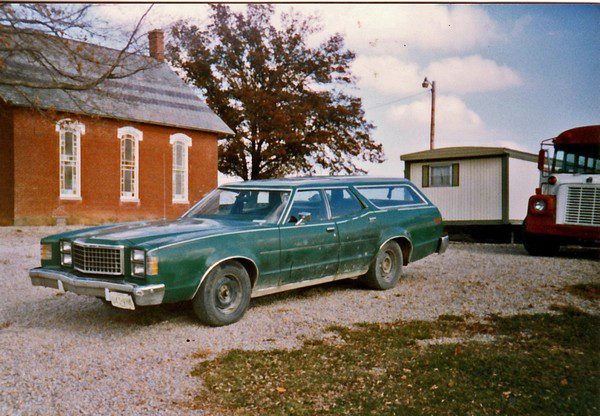
Of course, my devotion to God, the church, and the ministry was a waste of time and money. One of the biggest regrets I have is that I wasted the prime of my life in service to a non-existent God. While certainly I helped many people along the way, I could have done the same work as a social worker and retired with a great pension. Instead, all I got was a gold star for being an obedient slave. I am not bitter, nor is Polly. We have many fond memories of the time we spent at Somerset Baptist Church. But, both of us would certainly say that we would never, ever want to live that way again. We loved the people and the scenery, but the God? No thanks. We feel at this juncture in life as if we have been delivered from bondage. We are now free to live as we wish to live, with no strings attached. And, there’s not a dilapidated Chevrolet Cavalier sitting in our driveway. No sir, we have electric windows, electric seats, air-conditioning, and the greatest invention of all time for a back ravaged by osteoarthritis — heated seats. We may be going to Hell when we die, but I and misses sure plan on enjoying life until we do.
Bruce Gerencser, 68, lives in rural Northwest Ohio with his wife of 47 years. He and his wife have six grown children and sixteen grandchildren. Bruce pastored Evangelical churches for twenty-five years in Ohio, Texas, and Michigan. Bruce left the ministry in 2005, and in 2008 he left Christianity. Bruce is now a humanist and an atheist.
Your comments are welcome and appreciated. All first-time comments are moderated. Please read the commenting rules before commenting.
You can email Bruce via the Contact Form.

